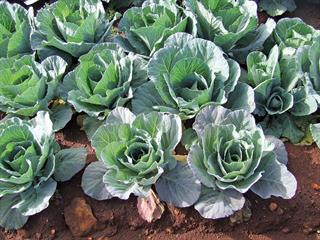Agricultural machinery sales for April reflect the strong demand for new equipment. April sales of tractors into the market, excluding export sales, were 660 units, more than double the 288 units sold in April last year. On a year-to-date basis, tractor sales were almost 68% up on last year. This is according to Charles van Niekerk, chairperson of the South African Agricultural Machinery Association.
Combine harvester sales for the year to date were more than double those for the first four months of 2007. Baler sales were also significantly higher than last year. Van Niekerk explains that with good expectations for summer crops in terms of expected production and current good prices, farmers have been able to afford to buy equipment.
Secondly, with significant machinery price increases looming, due to the weaker rand, many farmers have moved their buying decisions forward.
“It‘s likely that the market will consolidate over the next few months as the effect of higher equipment prices takes hold,” Van Niekerk said in his monthly press statement. – Staff reporter
Weak rand helps Sappi weather powercuts
Despite the impact of load-shedding and the unsatisfactory profitability of Sappi’s European operations, the company managed an operating profit of US$97 million for the second quarter, ending March 2008. This was due to the strong global demand for coated fine paper and chemical cellulose, which traded at above-average prices on the back of a weaker rand against the US dollar.
“Forest Products’ results were hurt by reduced production and sales volumes due to some production problems at Saiccor, our chemical cellulose plant in KwaZulu-Natal, as well as by Eskom’s power disruptions early in the quarter,“ explained Sappi’s chief executive Ralph Boëttger. “After a major three- to four-day disruption, we reached an agreement whereby we’ll meet Eskom’s requirement to reduce our power purchases by generating more of our own power, although this will be more costly.”
he expansion programme at Saiccor is nearing completion and the start-up of the plant is expected to take place in June. The fully operational plant will be able to generate more of its own electricity.
Looking forward, Boëttger said that the operating performance of Sappi’s Southern African operations was expected to remain strong. He added that operations in North America were expected to improve year-on-year, but that concerns existed about the performance of the company’s European businesses. – Lloyd Phillips
Transnet may freeze tariff hikes
THERE ARE Rumours that TRANSNET’S tariff increase of 16,5% to 22% will be frozen indefinitely. While Transnet Ltd is tight-lipped, spokesperson for Freight Rail Mike Asefovitz has said there are “plans in the pipeline that would excite you”.
National Chamber of Milling executive director Jannie de Villiers said that while he hadn’t heard any news about tariffs being frozen, he would welcome the move. “But it’s still important that there’s increased spending on infrastructure and maintenance to ensure food security,” he said. “The World Bank has recommended that to improve on food production efficiencies, governments need to spend more on roads, rail and on ports.”
o this end, group CE Maria Ramos recently announced the state-owned freight logistics group’s ambitious five-year capital expansion programme to turn around the beleaguered company. While R37 billion has been budgeted for the next five years, the question remains how much will go to agricultural investment.
“Agricultural products fall under general freight business (GFB) and as such, share resources with the rest of the GFB,” said Asefovitz. “Other than wagons, no resources are dedicated specifically to agricultural products.”
Despite the much-anticipated arrival of 212 new and 50 refurbished diesel locomotives as part of Transnet Rail’s three-year, R18 billion turnaround strategy, these won’t be exclusively used to serve agriculture. “GFB services several commodities, so any surplus capacity will be allocated as required,” said Asefovitz. “But the current spending on locomotives and infrastructure will benefit both GFB and agriculture.” – David Steynberg
Mohair industry gets set for fibre year
The SA mohair industry is looking for partners and funding for the first International Mohair Summit that will be taking place from 2 June to 7 June next year in Jansenville in the Eastern Cape. The summit will be part of the Year of Natural Fibres.
According to Andrew Binning of Inkanyezi Event Organisers, the facilitators of the summit, funding is a vital first step.
“To ensure the sustainability of the International Mohair Summit, it’s been proposed that government contribute most of the funding for the first one. Thereafter, this can be gradually reduced as private organisations contribute larger amounts. We’ve already approached the Economic Growth and Infrastructure cluster committee in this regard,” he said.
Binning added that the first meeting of a working group, which will represent all stakeholders and give guidance and strategic direction to the initiative, will be held in Jansenville on 28 May.
Meanwhile, Inkanyezi are building up a national and international database of contacts and information on the mohair industry. – Roelof Bezuidenhout
Contact Andrew Binning on 082 372 9247 or 041 3655 634, or
e-mail [email protected].









